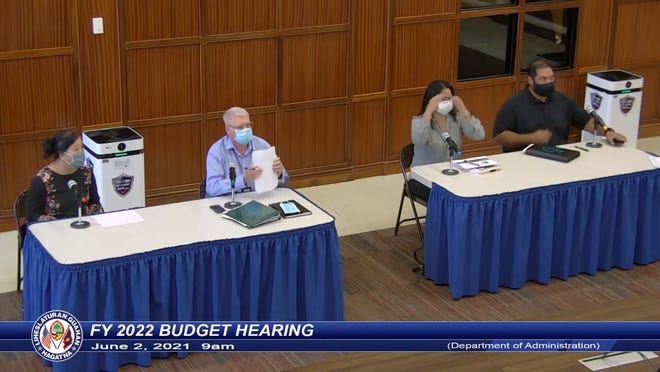About 13% to 14% of government of Guam employees are currently eligible for retirement, Director Edward Birn of the Department of Administration told lawmakers during the agency’s budget hearing on Wednesday.
Sen. Tina Muña Barnes brought up the concern over the approaching number of retirees during the hearing, citing the need to preserve institutional knowledge within GovGam that could be lost as more experienced employees step down.

“You get a lot of people that are retiring … this COVID is, is causing a lot of people to rethink their lives and wanting to say, “okay, you know, I’ll retire now,” Sen. Telo Taitague said.
Birn echoed the senators’ feelings, and stated the need for individual departments to begin to have the conversation with those members who were eligible to retire. He said the Department of Administration had begun the process of working with experienced employees to pass on some of their accumulated knowledge, something that wasn’t done before.
On a positive note, he was glad to announce that younger employees were quicker on the uptake, especially when it came to utilizing the newer technologies that were being used to manage government operations.
“We want to get the the best people we can into government service, we want to make it a career for people,” he said.
To that end, the agency is currently working on the implementation of a competitive wage study, which he said was long overdue. Birn stated that they were working to ensure that proper funding was available to implement the study, in order to avoid past frustrations that had resulted.
The Department of Administration is currently working with employed nurses to address some of the issues that they have with current pay scale levels. According to the agency’s personnel services administrator, Shane Nauta, problems with compensation for shift work, and specialized and executive management positions were being looked at. A draft would be submitted to governor in the next few days.
Gov. Lou Leon Guerrero has asked the agency to customize a pay plan for each government agency, Nauta said.
Recruiting and retaining
Some senators brought up the problems with bringing on and holding on to new, qualified personnel into the government of Guam.
Nauta said the Department of Administration was working closely with government agencies to approve potential clients for new positions, though the time to bring new hires on board could vary, depending on the position and the number of qualified applicants.
“We can say roughly two weeks now depending on the position. Because some, some positions, we only have three qualified applicants, and within a day, a department will come back to us and say they all either declined or they don’t meet their their standard,” he stated.
Some, like law enforcement officers, could take much longer, given the additional requirements and training that were needed.
“I’m just concerned that there appears to be no effort to recruit the folks that are graduating from schools,” Sen. Joe San Agustin stated. The government should function like the military in that regard, he said, and actively be trying to recruit individuals as early as high school or college.
San Agustin also brought up the possibility of having some sort of mandatory retention and payback period, in order to keep employees who were trained and certified by GovGuam from being poached by the private sector or federal government at higher wages.
Birn brought up certain issues with autonomous, revenue generating agencies in GovGuam being able to outcompete the central, government line agencies for employees.
“One of the autonomous agencies was advertising for an accountant one, and they were paying the more than I could pay an accountant two. And that obviously makes us not competitive,” Birn said.
If autonomous agencies could afford to pay more, there was nothing line agencies could do, he said, deferring to the legislature to address the problem.
A growing government
Sen. Joanne Brown said that she differed from other lawmakers on the issue of government employment and questioned the assumption that a lack of pay, and shortage of employees was what hampered the effectiveness of GovGuam.
The number of new retirees would not be different from any other fiscal year, she said.
Sen. Tony Ada brought up the fact that certain agencies were expecting to increase their personnel by using American Rescue Plan funds, though Department of Administration did not plan to do so.
“If there’s an expectation that we’re going to continue to keep adding personnel to the government of Guam, without ensuring long term ability to sustain paying these people, I think that’s a disservice to those employees that are being hired, and a bigger disservice of people of Guam,” Brown said.

